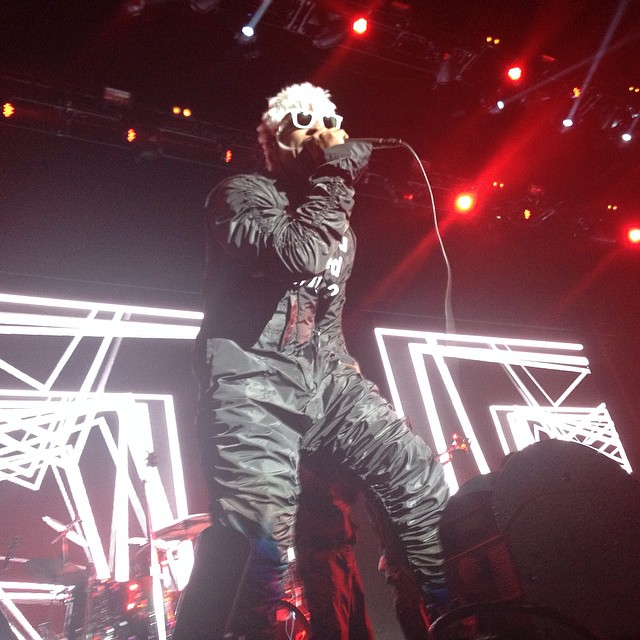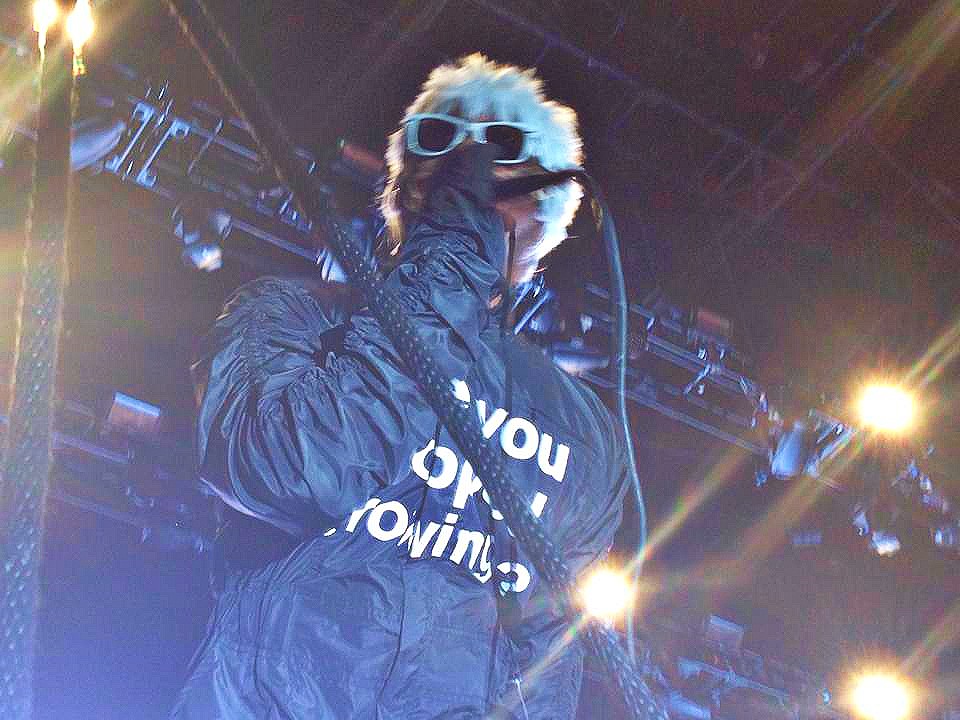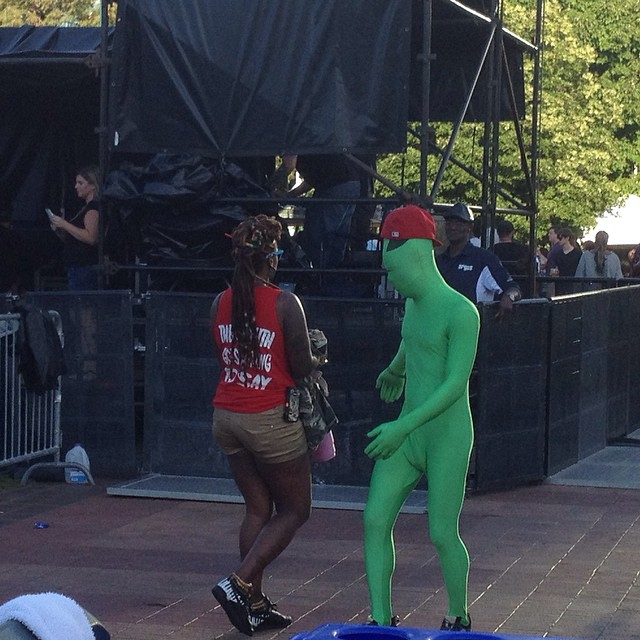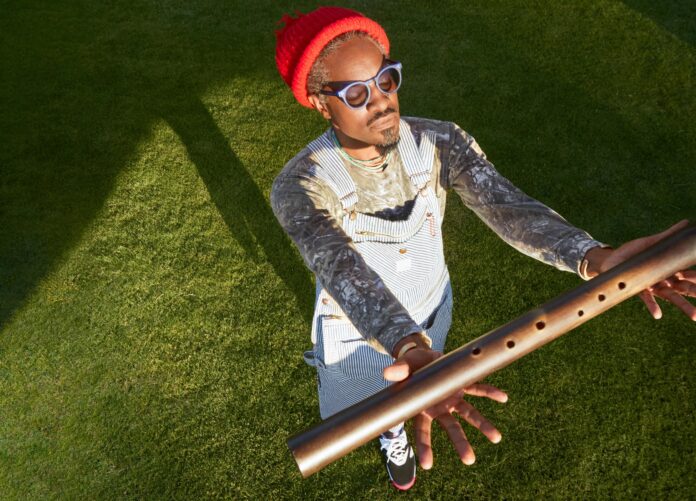André 3000 sold out five shows at three Bay Area venues (Tue/20 and Thu/22 at Bimbo’s and Sat/24 at The Independent in San Francisco and Mon/19 at Cornerstone in Berkeley) in less time than it took for you to finish reading this sentence. He plans to perform selections from his flute-forward solo album New Blue Sun and is highly unlikely to throw in an impromptu rap freestyle or a classic from his legendary former act Outkast, no matter how much we might crave that.
New Blue Sun has no beats or bars, but it does have lyrical song titles, including the opener, “I Swear, I Really Wanted To Make A ‘Rap’ Album But This Is Literally The Way The Wind Blew Me This Time.” (It also includes several great local players, including guitarist Nate Mercereau.) As he told NPR journalist Rodney Carmichael in November, he didn’t necessarily intend to go in this direction after putting his rap career to rest, but it’s what feels good to him these days. He’s in on the joke with the people who think it’s all funny for him to be a flutist now, but it’s seriously the music he wants to share with others.
“As an artist, you got to have really strong antennas,” he said. “And that’s really what it’s about. So where I am now is where I’m supposed to be. I couldn’t plan it. And here’s the cool thing. Yes, we can plan it, our limited human brains can plan it. But it’s always greater and more magical when you’re surprised by these things.”
I’ll be reporting the scene at the first local André 3000 show, which takes place on Tue/20 at Bimbo’s. After getting assed out of buying tickets at a normal price, I broke my personal upper limit of ticket prices previously reserved only for the late star Prince’s Bay Area final concerts in order to get a much-inflated resale ticket, and I plan to see who will be waiting in line in the rain along with me hours before this particular show. There is first come, first served seating, so there won’t be a mosh pit.
The Bay Area has always shown major love to André 3000 and Outkast, so it’s perhaps not that shocking that these shows were snapped up so fast. We also love ambient, classical, and jazz experimentalists around here. San Francisco radio station KMEL was one of the first in the country to play Outkast. Oakland rapper Too $hort is Outkast member Big Boi’s favorite rapper, he declares on “Fo Your Sorrows,” his collaboration with $hort and George Clinton, the godfather of funk who influenced them both heavily. And Bryan Barber, the band’s video and Idlewild movie director, grew up watching Creature Feature movies on KTVU Channel 2 with his grandmother in East Palo Alto.
The last time the man born André Benjamin performed in the Bay Area was with Big Boi (Antwan Patton) as Outkast at the Treasure Island Music Festival on October 18, 2014. He wore a black jumpsuit emblazoned with the words: “Have you stopped growing?” The next day, he was spotted checking out the @Large, Ai Weiwei on Alcatraz political art installation.


Over the following two weeks, he and Big Boi performed at two more festivals in Las Vegas and New Orleans, and haven’t been on a stage together since. Just before the Treasure Island Music Festival, Outkast sold out three 20,000-person capacity shows at Atlanta’s Centennial Olympic Park for a festival called Outkast #ATLast. André told Atlanta radio host Ryan Cameron at the time that they’d never sold out three shows in a row before, and Outkast is a Diamond-certified act, a sales honor that few acts—like the Beatles and the Eagles—can claim.
Sensing that this could be the last time Outkast did shows, I flew myself out to Atlanta and sold some reviews of the weekend to Billboard. Each day, the crowd received them so warmly, and cheered even more loudly for the street cuts than the radio hits. I was hoping this was the beginning of a second wind instead of the end.
André’s jumpsuits for that Outkast #ATLast weekend: “The hardest time of our lives” (Friday), “Teacher’s [sic] deserve more” (Saturday), and “I forgive you, now your turn” (Sunday). These later became limited edition shirts sold to raise funds and awareness for the Black Lives Matter organization.
“Outkast is the Rolling Stones of rap music!” Killer Mike shouted from the stage to huge cheers on that holy Sunday.

After many years offstage, the 2014 festival season began for Outkast with a shaky April performance at Coachella, and while the duo were much sharper and in form by the time they got home to Atlanta, the memory of those first two performances most likely haunted André 3000. Especially because, as he told GQ, Prince called him to tell him that it was “horrible.” He started saying publicly that he didn’t want to be a middle-aged rapper. More recently, he told NPR’s Carmichael, he’s been diagnosed with anxiety.
On the last night in Atlanta, he seemed humbled to have performed for around 60,000 people in three days, so many years after their 1994 debut album and just 10 miles south of where Outkast was born at the intersection of Headland and Delowe Streets in East Point, Georgia.
“People are still trying to understand us,” he marveled.
Of course they are, because as André told us from the stage of The Source Awards in 1995, “The South got something to say—that’s all I got to say!”
After André 3000 finishes his local run of New Blue Sun shows, the appreciation will continue around these parts. I’ll be hosting a free online Music Book Club event with 48 Hills and America’s brilliant Outkast scholar and professor Dr. Regina N. Bradley, author of Chronicling Stankonia: The Rise of the Hip-Hop South and editor of An Outkast Reader: Essays on Race, Gender, and the Postmodern South, on March 31 at noon Pacific Time on Zoom. Join us!
Tamara is the founder of the new online Music Book Club.







